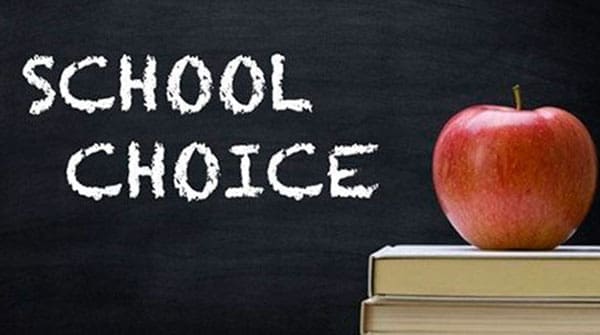 Choice and opportunity should be fundamental to public education, but sometimes the argument gets muddied by peculiar personal perspectives.
Choice and opportunity should be fundamental to public education, but sometimes the argument gets muddied by peculiar personal perspectives.
We’ve seen an unprecedented movement in Canadian publicly-supported schools to accommodate the needs and rights of minority groups such as LGBTQ, with the introduction of gender-neutral bathrooms and curriculum updates. Social justice issues have taken up space in classroom projects to bring focus and attention to the diversity of minority groups.
Such demands are not new in publicly-funded education. When Canada was founded, the British North America Act, 1867, ensured that religious and language minority rights were recognized and protected in publicly-funded education. That’s because the Catholic/French minority played a key role in establishing Canada. In 19th-century Canada, religious education played a major role in the moral development of children.
The separate Catholic and French school systems in such provinces as Ontario have endured criticism over the years. Some opponents complain that they’re anachronisms. Some Canadians ask why school boards that offer religious instruction receive public funding, and believe that provinces should only fund one school system.
Yet non-Catholic families continue to register their kids in Catholic school systems where students don’t have to be Catholic to attend.
A recent Ontario Human Rights case highlights why non-Catholics are opting for Catholic schools. Claudia Sorgini, now a university student, attended St. Theresa’s Catholic High School in Midland, Ont., even though she wasn’t Catholic.
She claims that she chose the Catholic school over a public one because it offered her a better selection of science courses and music instruction. While Sorgini took advantage of an education choice that catered to her needs, she informed the school’s administration she didn’t like the religious instruction that came with the curriculum. The school accommodated her by exempting her from religious activities and classes.
Sorgini wasn’t satisfied. She complained to the human rights tribunal that the school and trustee association “engaged in a continuous pattern of discrimination and reprisal in connection with her request for an exemption from religious courses and activities.” She claimed she was targeted for her request to be exempted from the religious aspects of Catholic education.
Sorgini’s lawyer argued that “pressure to attend religious courses in a publicly-funded school amounts to religious discrimination under the human rights code.”
In fact, her Catholic high school accommodated her request for an exemption from religious instruction.
With so many non-Catholics attending Catholic schools, the religion curriculum offered in Grades 9 through 12 has steadily evolved into “moral” instruction. In Grade 12, a religion credit course is labeled “Philosophy.” In all religion classes, students can select any religious figure from any religious group for their assignments.
For many parents who seek moral instruction for their child, the option of enrolling in a Catholic school is welcome.
Rather than argue that she perceived a course was forced upon her in a separate school system, Sorgini should have argued about her limitations in the public high school. She chose a Catholic school because it offered more choice than the public one. Sorgini’s case would have made more sense had she argued that the public school system gave her few science and music course choices. Fundamental to human rights is access to a public education system that offers choice and quality to the taxpayers who pay for that system.
Sorgini’s human rights complaint only reinforces the point that more school choice is necessary in Canada’s public education system – not less, as she essentially argued. Her complaint was driven by her “hurt feelings” and did a disservice to the many kids who deserve an education where choice can make the difference between thriving and being unhappy. Arguing that her rights took precedence over another student’s right to choice in schools is not a win for human rights.
As public schools evolve, we see an emphasis on classroom instruction defending minority rights. More than 150 years ago, Canada became unified by promising to defend the rights of the minority who helped create this country.
We should welcome the opportunity for choice in separate Catholic and French public school systems. We should be encouraging government to create even more choices in how we deliver education, not less.
Maddie Di Muccio is a former town councillor in Newmarket, Ont., and former columnist with the Toronto Sun.
Maddie is a Troy Media Thought Leader. Why aren’t you?
The views, opinions and positions expressed by columnists and contributors are the author’s alone. They do not inherently or expressly reflect the views, opinions and/or positions of our publication.

